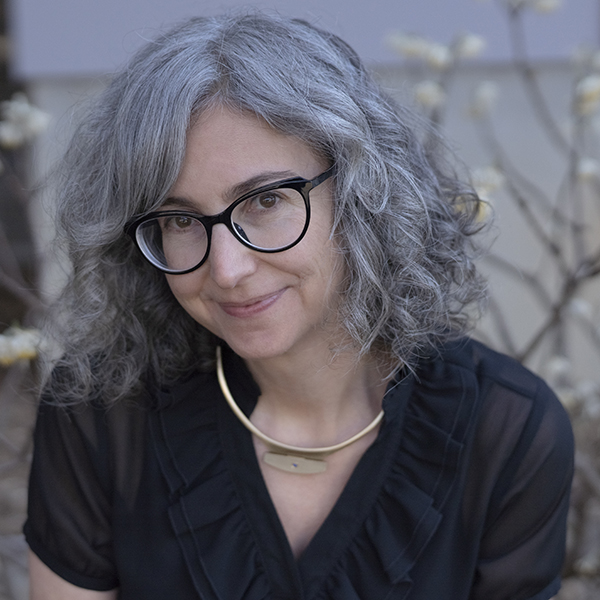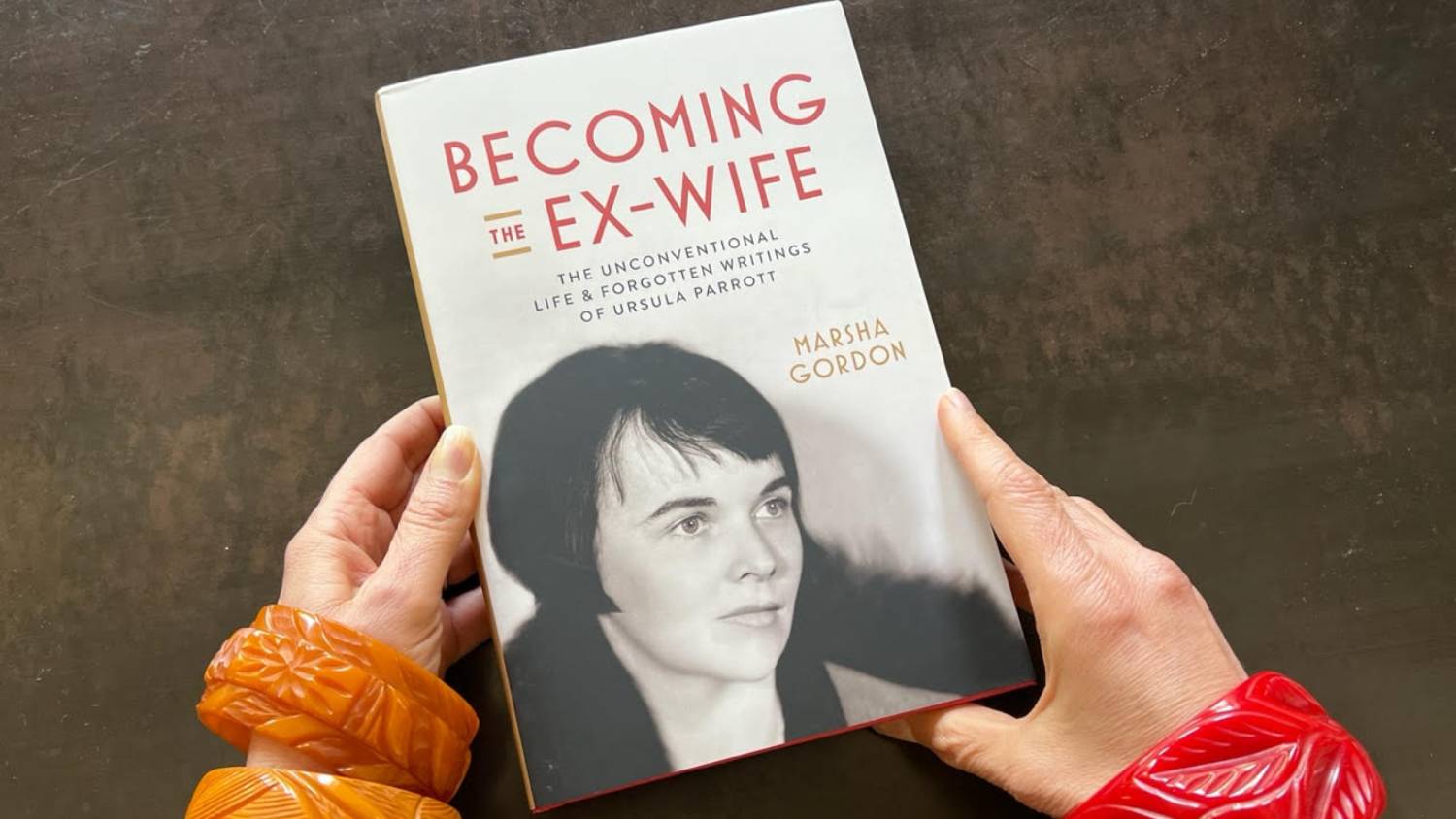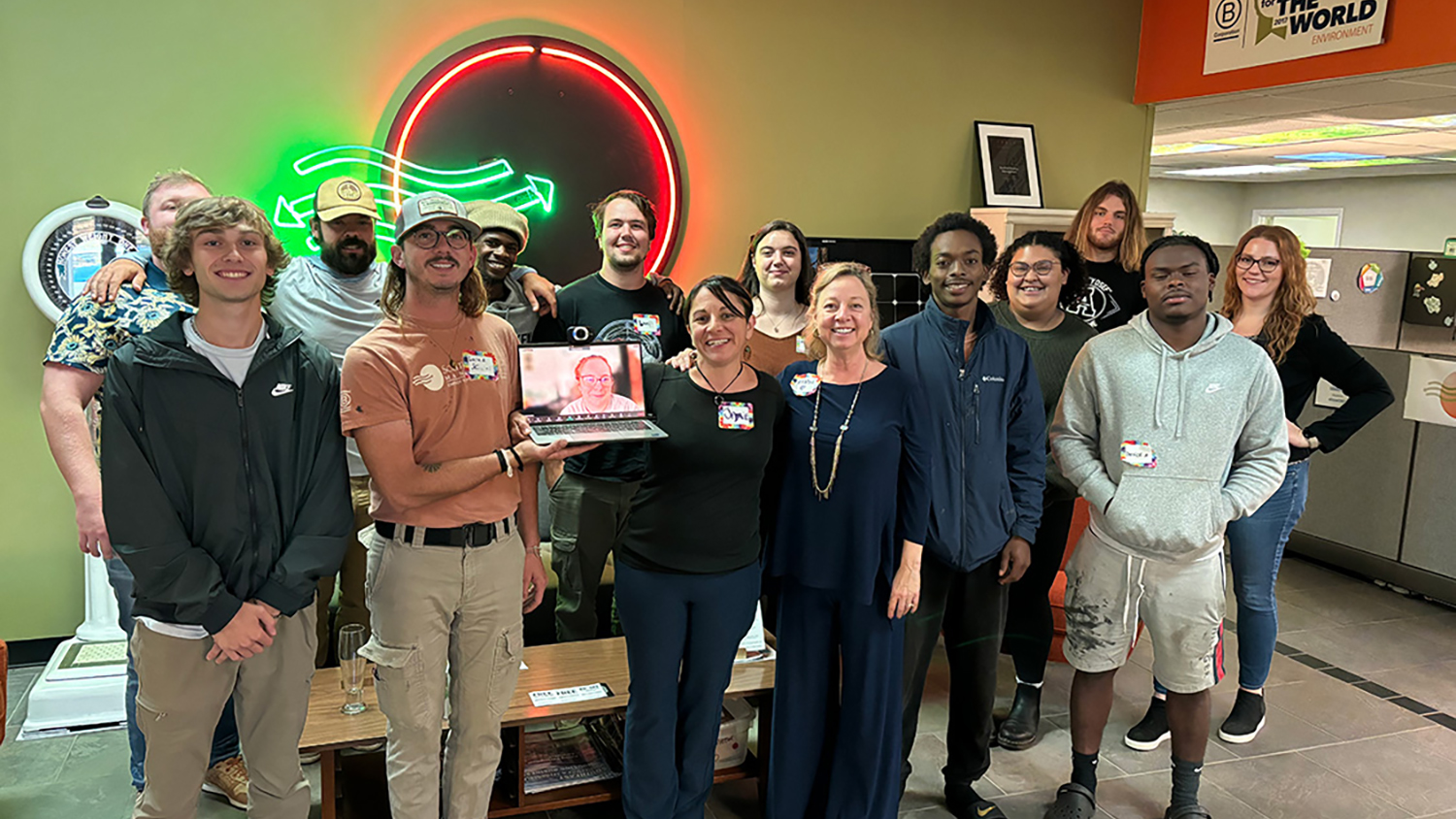Marsha Gordon is a professor of film studies at NC State who has just published a new biography, Becoming the Ex-Wife: The Unconventional Life and Forgotten Writings of Ursula Parrott.
It arrived in bookstores this spring at the same time as a reissue of Parrott’s novel Ex-Wife, which became a best-seller when it was published anonymously in 1929.
Gordon tells the complicated story of a pioneering woman who wrote from personal experience about gender inequality in ways that remain relevant today.
We caught up with Gordon to learn more about her extensive research and busy life as a writer and professor.
Why this story? What motivated you to tell it?
I chanced across Ursula Parrott’s name when I was conducting research into a screenplay that F. Scott Fitzgerald had been hired to write based on a story she published in Cosmopolitan magazine. I had never heard of her, and when I started looking into who she was and read her first novel, Ex-Wife, which became a best-seller in 1929 and was adapted into a film the next year, I was baffled by why her books were out of print and nobody seemed to know who she was. The more I learned about her, the more I thought her story deserved to be told and that she should be recognized for her original and impactful thinking about the modern world, and adventurous — if difficult — life. It did feel risky to commit to writing a book about a woman nobody had heard of whose books were out of print. But it came down to the question: if not me, then who?
What fascinates you most about Ursula Parrott?
I’m in awe of her courage and frankness. Imagine being a recently-divorced single mother, supporting yourself in a job you don’t love, and deciding to write a thinly-veiled version of your life story that includes your worst mistakes and some of your darkest experiences. And then using your platform to talk to the media, and to write stories and screenplays, about how hard it was to be a woman, wife and mother; how impossible it was to balance work and life; how predatory and insecure men could be; and how awful the double-standard was. And then imagine that it is almost a hundred years ago! She was daring and unafraid.
What kind of research did you do for the book?
Researching this book was true detective work. I read every story, article and book Parrott published and kept a spreadsheet with notes about each — that’s 20 books and more than 100 short stories, articles and novel-length magazine serials. I scoured newspaper and magazine databases for writing by and about her. I conducted research in archives of all sorts — from the Radcliffe archives (where she went to college) to the Margaret Herrick Archives of the Academy of Motion Pictures (because she worked in Hollywood and 10 films were adapted from her writings). I read every letter she wrote that I could find.
Since nobody paid any attention to her when she died — there was not even a single obituary published — there is no “Ursula Parrott archive” to turn to for information about her life. So I had to be creative in finding traces of her in many different repositories.
I should add that I could not have found as much as I did without the incredible support of librarians, both at NC State, where we have the best library resources and librarians in the world as far as I’m concerned, and at the numerous other institutions I worked with during the writing of this book. Librarians and archivists are the unsung heroes and heroines of any book project.

What was the hardest chapter to write? Why?
The last chapter because Parrott had a challenging final decade of her life, which was spent largely in poverty and obscurity, I had a lot less information about what she was up to in this period. Unless she made headlines for one reason or another or something turned up in someone else’s papers from this era, I had very little to go on after she stopped publishing in 1947. During her last decade, she was still writing and trying to get back into the publishing game. But she couldn’t make that happen so I had to piece together small clues here and there to tell this part of her story.
What impact will Parrott’s story and writings have on the gender debates still going on today?
Parrott’s story is extremely relevant today, and her writings confronted serious matters for women — including divorce, alcohol abuse, rape and illegal abortions. Taken collectively, they give a sense of the culture wars of the 1920s through the 1940s and remind us of how many of those same issues are still being debated today.
How does a professor make time to write?
I have always gotten the bulk of my writing done during the summer when I do not teach. I’m just not able to dip in and out of a larger writing project for 20 minutes here and 40 minutes there, so I write when I have bigger blocks of time. The only reason I was able to write and revise Becoming the Ex-Wife as expeditiously as I did was that I had two back-to-back fellowships, one at the National Humanities Center, and the other an NEH Public Scholars Award, which allowed me to focus most of my time and energy on the book for two years. What a difference that made!
How does your writing affect your work as a professor and your interactions with students?
I taught a class this semester, Writing About Film, which focused on getting students to take writing seriously and to be creative in their approaches to it. The students wrote poetry, close readings of movie scenes, film reviews, an academic essay, reflections on the act of moviegoing in a theater and so on. They workshopped each other’s writing each week and read their writing aloud in class. Teaching this class grew out of my ongoing commitment to improve and rethink my writing, especially with this new book, which was written for a general readership. I’m very interested in teaching writing because it’s so useful to be an engaging and clear communicator.
When do you write, and what are your writing rituals?
I’m at my best and sharpest in the morning, and I am no good at working at night. So I wake up as early as possible, though I rarely set an alarm since I am an early riser. I grab a cup of coffee and like to be at my desk writing ten minutes after I wake up, and I do this seven days a week when I’m deep into a project. When I need a break, I work in the yard or go for a walk when the weather is nice. But I tend to make myself stay pretty focused on writing and revising until I burn out, which is usually around 5-6 p.m. I only work past that time if I have a specific deadline that forces me to do so.
In one word, how do you overcome writer’s block?
Persistence.
Which three writers, dead or alive, would you invite to a dinner party?
Just Ursula Parrott! I have so many questions I want to ask her about her life that I couldn’t find answers to. It would make me so happy to sit down with her and have a one-on-one conversation.
What’s next?
I’m trying to get more of Ursula Parrott’s work republished, including a collection of her short stories and nonfiction writings. There’s one especially wonderful serial that she wrote, Breadwinner, about a woman screenwriter, which is set in the late 1920s and early 1930s in New York that I’d love people to be able to read. It’s about work-life balance and the particular challenges faced by successful women. I’m also co-authoring the fifth edition of an introductory film studies textbook for Routledge, Film, Form, and Culture, with Robert Kolker. And I’m in pre-production on a new documentary, co-directed with my husband Louis Cherry, “This Beautiful Vision,” about the visionary artist Alexander Bogardy. I have lots of other writing ideas, but not sure when I’ll have time to get to them!
- Categories:



